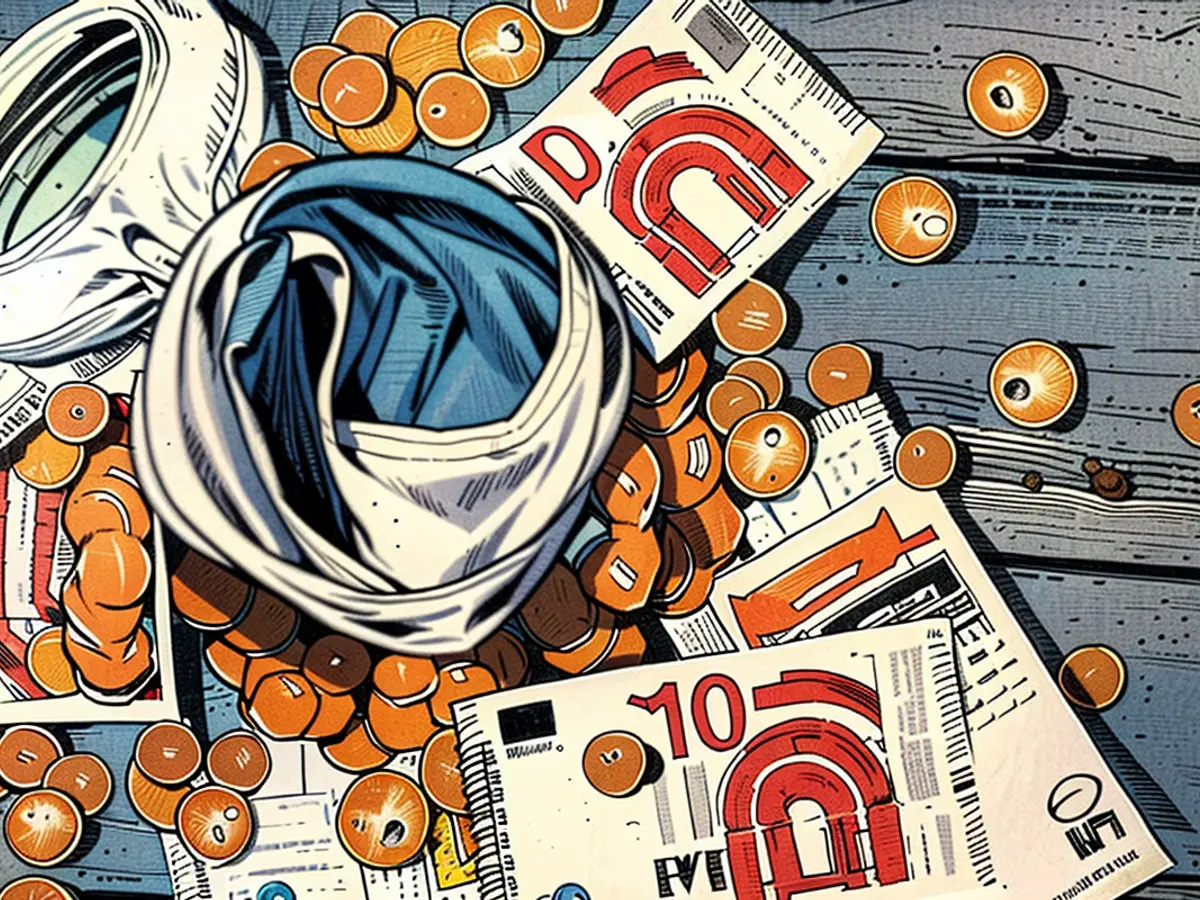Investing in assured interest returns on your daily earnings?
Many financial institutions seem to be acting in advance, as they've been reducing their savings interest rates lately, leading some to speculate that the anticipated interest rate cut by the European Central Bank (ECB) might have already taken place.
In a span of eleven days, no less than 14 providers have chosen to lower their savings interest rates. The general assumption among these institutions is that the ECB's key interest rate will drop by 0.25 percentage points, bringing it down from an average of 4.25% to 4%, or from 3.75% to 3.5% in the deposits area.
Notably, savings offers from N26 saw a decrease ranging from 1.26% to 0.25%, which resulted in a drop of interest rates to 3% or 1%, respectively. Most banks are now barely offering interest rates above the 3.5% mark. This development is due to banks being able to deposit their customers' savings and current account funds at the ECB daily and earn a 3.75% interest rate as compensation. If the ECB were to actually reduce the deposit rate to 3.5% in September, as suggested by recent interest rate decisions, banks that guarantee 3% interest rates would still make a 0.5 percentage point profit.
Regarding those choosing to switch banks, 26 out of 55 banks have provided assurances on maintaining their current interest rates. The duration of these guarantees depends on the bank's offer; good offers provide investors with at least six months of security, while excellent offers guarantee three to four months. These guarantees are set to cushion banks against potential ECB key interest rate cuts to ensure they continue making profits from savings accounts.
Interested savers may be more concerned with their investment gains than their bank's returns, thus leading them to question if they should accept lower savings interest rates in exchange for longer guarantee periods, or opt for better-paying but shorter-term investments.
An example calculation can help determine which option is the most beneficial. Say the 4.2% offer from XTB for three months and the equally attractive 3% offer from BBBank for six months are compared. The subsequent interest rate at XTB after the expiration of the guarantee period for one quarter would need to be only 1.79% for both investments to yield the same. Given this scenario, the longer but less well-remunerated option would be less favorable.
For personalized guidance, one can utilize the free investment calculator.
On a different note, Freedom24 offers limited legal coverage up to 90% of the deposit, capped at 20,000 Euros. Notably, Freedom24 does not offer an instant-access deposit, but rather an investment tied to Euribor and SOFR rates. This means that interest rates are affected more by market movements: if the ECB decreases its key interest rate, Freedom24's instant-access deposit rate will follow suit. This is at the expense of a lower deposit guarantee.
In conclusion, either long-term interest rate guarantees or offers that forgo guarantees entirely in favor of following market trends are recommended at the moment. Providers without interest rate guarantees will likely reduce their unattractive instant-access deposit rates further, blaming the ECB. Those looking to profit from higher interest rates should act promptly, as rate cuts will become more frequent as the upcoming ECB rate decision approaches.
Max Herbst is the owner of FMH Financial Consulting, which has been providing independent interest rate information since 1986.
The decision of many financial institutions to lower their savings interest rates might impact consumers, as they now have fewer options for earning a significant return on their savings. In response to the ECB's potential interest rate cut, some banks offer longer guarantee periods for lower interest rates, providing a sense of security for consumers.









